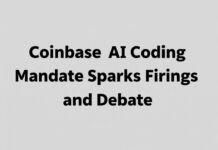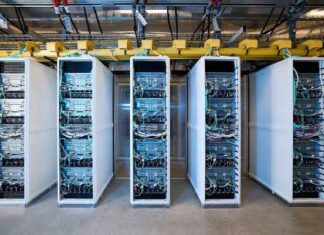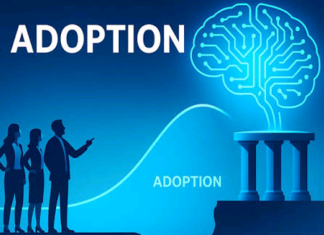When you purchase through links on our site, we may earn an affiliate commission. This doesn’t affect our editorial independence.
Meta has employed a highly influential OpenAI researcher, Trapit Bansal. The Meta AI hiring spree is aimed at shaping its AI reasoning systems within its newly formed AI superintelligence unit.
Meta AI’s hiring spree continues as the company recruits top OpenAI researchers to bolster its efforts in superintelligence and AI reasoning. This demonstrates the company’s bold ambition to lead at the forefront of advanced artificial intelligence development.
Meta AI Hiring Spree Gains Momentum
Furthermore, an OpenAI spokesperson, Kayla Wood, verified that Bansal had indeed left OpenAI. His LinkedIn profile shows that he exited the company in June. Meanwhile, Bansal has been at OpenAI since 2022 and played a crucial role in initiating reinforcement learning work. He will do this alongside the co-founder, Ilya Sutskever. Additionally, he is recognised as a significant contributor to OpenAI’s initial AI reasoning model, O1.
In the future, Bansal’s addition is expected to provide substantial value to Meta’s AI superintelligence team. That unit already includes industry figures like former Scale AI CEO Alexandr Wang.
Check out our previous posts:
OpenAI States Interest to Acquire Google Chrome
Threads New Features Unveiled to Enhance Engagement and Personalization
Additionally, reports suggest Meta is pursuing other leaders, such as ex-GitHub CEO Nat Friedman and Safe Superintelligence co-founder Daniel Gross. With Bansal’s involvement, Meta aims to develop an AI reasoning system that can rival top-tier models, such as OpenAI’s o3 or DeepSeek’s R1. As of the time of writing this report, Meta hasn’t launched a public-facing reasoning model.
Top Talent From OpenAI Joins Meta’s Superintelligence Team
In recent months, Mark Zuckerberg has launched an aggressive recruitment campaign to bolster Meta’s new AI division. He has reportedly offered compensation packages of up to $100 million to attract top-tier researchers. The exact terms extended to Bansal remain unclear. Still, Zuckerberg is succeeding in acquiring elite AI research talent.
In addition to Bansal, three other former OpenAI scientists, Lucas Beyer, Alexander Kolesnikov, and Xiaohua Zhai, have also joined Meta’s superintelligence group. Moving forward, they will now work alongside other prominent recruits, including former Google DeepMind researcher Jack Rae. Additionally, Bloomberg reported that they will work with Johan Schalkwyk, a former head of machine learning at startup Sesame.
To further expand this AI unit, Zuckerberg reportedly attempted to acquire startups with strong AI research foundations. These include Sutskever’s Safe Superintelligence, Mira Murati’s Thinking Machines Labs, and Perplexity. Notwithstanding, talks around these acquisitions never reached a definitive conclusion.
Meta AI Hiring Spree: Zuckerberg’s AI Ambitions Face Industry Pressure
OpenAI CEO Sam Altman mentioned on a recent Podcast that Meta had been actively trying to lure away OpenAI’s top talent. However, he claimed that “none of our best people have decided to take him up on that.”.
Developing capable AI reasoning systems has become a strategic priority for Meta’s superintelligence division. Over the past year, companies such as OpenAI, Google, and DeepSeek have unveiled high-performance AI reasoning models that significantly enhance software intelligence. These systems work by giving models time and computational space to think through problems before generating answers. That method has led to better results in both evaluations and practical tasks.
Meta’s superintelligence team could soon become the company’s core internal engine, mirroring the role DeepMind plays at Google. The company has also launched initiatives to create AI agents for businesses, overseen by former Salesforce AI executive Clara Shih. To make those agents truly powerful and competitive, Meta needs to craft next-generation AI reasoning systems.
Similarly, Bansal and several other key researchers on board installs hope to accelerate its lead in the AI arms race. However, this may prove challenging, especially as OpenAI is reportedly preparing to release a new open-source reasoning model in the coming weeks. Such a release could put even more pressure on Meta to deliver.
Final Notes
Meanwhile, The Information revealed that Meta recently hired four additional researchers from OpenAI: Shengjia Zhao, Jiahui Yu, Shuchao Bi, and Hongyu Ren. This flurry of activity follows the underwhelming reception of Meta’s Llama 4 models in April, which reportedly didn’t meet Zuckerberg’s expectations. Criticism also followed regarding the version used for a key benchmark.
There’s growing tension between the two AI giants. Altman claims Meta’s monetary offers haven’t lured away OpenAI’s best talent, while Meta CTO Andrew Bosworth clarified that the actual terms are more complex than just large one-time bonuses.







